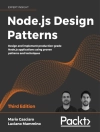Programming languages evolve in steps. They began with weakly typed lan- guages like FORTRAN and progressed to strongly typed languages like PAS- CAL. This had the positive effect of moving the detection of many programming errors from run-time to compile-time. Unfortunately, it was soon recognized that it had the negative effect of limiting the generality of functions since they were now bound to a specific data type. This virtually eliminated the writing of reusable software components. The result was that programmers had to re-implement common algorithms and data structures over and over again. Newer languages, like C++, provide a way to decouple algorithms and data structures from the data types upon which they operate. C++ provides this capa- bility via the template mechanism. Suddenly, it became possible to write generic algorithms and data structures that could be reused. In effect, this provides de- bugged software components that can be combined to form programs much faster than by re-implementing the components each time they are needed. At the same time that programming languages were evolving, computer hard- ware was becoming incredibly inexpensive compared to programmers’ salaries. This provided a strong incentive to reduce costs by increasing programmer pro- ductivity. Software reuse was seen as one way to increase programmer productivity.
Robert Robson
Using the STL [PDF ebook]
The C++ Standard Template Library
Using the STL [PDF ebook]
The C++ Standard Template Library
Koop dit e-boek en ontvang er nog 1 GRATIS!
Taal Engels ● Formaat PDF ● ISBN 9781468405316 ● Uitgeverij Springer New York ● Gepubliceerd 2012 ● Downloadbare 3 keer ● Valuta EUR ● ID 4588989 ● Kopieerbeveiliging Adobe DRM
Vereist een DRM-compatibele e-boeklezer












